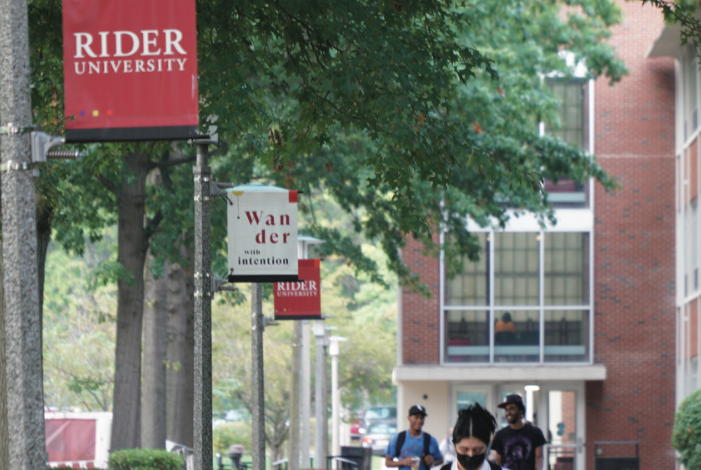
Students enter new academic year with tuition increases
By Amethyst Martinez
Rider students and their families were notified of a $500-per semester tuition increase for the 2022-23 school year, with the price rising an extra $500 per semester for all undergraduate students, via an email sent out by President Gregory Dell’Omo during the summer.
Outlined in the email, Dell’Omo described the thought process into the decision as “the need to continue investing in the quality of your educational experience with the need to maintain affordability.”
The email also mentioned that, even with the increase, tuition along with fees do not cover 100% of the university’s operating costs, which has led to the reliance upon additional funding sources such as donors to close the gap.
This tuition increase comes at a time when many Americans are facing the effects of inflation across the country. Drew Aromando, Vice President of Enrollment Management, cited multiple reasons for why the adjustment was made to pricing.
“Rider University’s approach to pricing includes a focus on overall affordability and the current economic environment, key strategic initiatives, recent enrollment trends and competitor data,” said Aromando.
Rider claims to invest over $84 million in financial aid for students every year, in addition to state and federal aid. “We are very proud of our ongoing commitment to providing financial aid,” said Aromando. “Every student and family’s financial circumstances are unique.”
During the COVID-19 pandemic, many colleges froze tuition prices for a certain amount of time; Rider froze its tuition for one semester in fall 2020. Since then, tuition has continuously upticked to meet the need for rising university costs. The 2022-2023 cost of new student attendance is $56,905 a year for those living on campus and $41,475 for commuters, according to the Rider University website.
Andrew Bernstein, Rider’s Student Government Association (SGA) president, said, “My sincere hope is that it doesn’t have a negative effect on incoming and current Rider students … I’m grateful that it’s not a higher rate than it is, but I know it will still affect people’s pocketbooks.”
Other universities around New Jersey have also seen stark tuition increases. Higher education institutions such as Rowan University, Rutgers University and The College of New Jersey
all raised their prices for their undergraduate programs.
Many students were also impacted by Rider’s new deregistration policy, which deregistered
over 400 students if they failed to meet certain requirements, mostly due to financial issues, for the fall semester.
The university has pushed students to reach out to campus resources if they’re struggling to afford their bill.
Aromando said, “Students are encouraged to visit One Stop Services, who will work one on one with students to make sure we are maximizing all eligible resources to meet the cost of a Rider education.”
Bernstein echoed the sentiment that students should reach out for help if they are faced with a tuition pricing issue.
“The great services we have here, like financial aid, are really what we’re trying to point students towards to help combat this,” said Bernstein. “We always, of course, welcome students to voice their concerns to us. We obviously can’t directly change the cost of tuition, or pricing faces that are associated with that, but it’s certainly something we can bring into conversations if we hear that feedback from students.”


